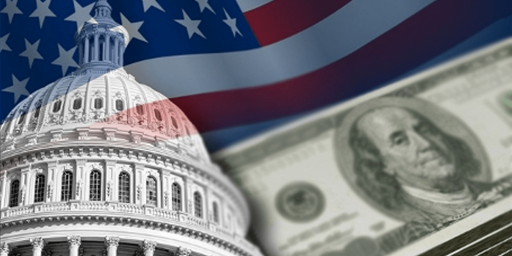Russ Roberts on the Economic Crisis
I highly recommend reading the whole thing. Below are just some of the parts I liked and reflect most strongly my own thinking about the current economic mess.
In 1930, Congress passed a massive tariff increase, in hopes of protecting American jobs. Hoover signed it. But it simply accelerated the economy’s slide. The Federal Reserve contracted the money supply, taking a recession and making it into a depression. By 1932, real GDP was 25% lower than three years earlier.
Hoover increased federal spending steadily, including an increase in real terms of about 40% in 1932. At the same time, fearful that deficits were harmful, Hoover raised income taxes.
Nothing worked. So Franklin Roosevelt came into office pledging stronger medicine. Enter even bigger increases in government spending. Government nationalization. Bigger deficits. Destruction of crops and livestock in the name of raising prices. Government-organized cartels. A greater empowerment of unions. It was a whirlwind of activity without any real plan.
[…]
Today, President George W. Bush plays the role of Hoover, the so-called free market ideologue who is trying anything to avert disaster. He signs a $700 billion bill putting Treasury in charge of buying troubled assets. A week later, the money is used to partially nationalize the banks. Some companies, like Bear Stearns, are bailed out. Others, like Lehman Brothers, are not. Some companies are sold. Some are allowed to fail. There is no plan, no rules, nothing to count on.
It’s just like the New Deal: a massive accumulation of power in Washington justified by the need to do something. There is every reason to think this trend will accelerate regardless of whether Barack Obama or John McCain wins the election.
Back in March, Henry Paulson, Ben Bernanke and the experts assured us that Bear Stearns had to be propped up. If not, the whole system could come crashing down. It is crashing down anyway. Just as in the 1930s, there is no evidence that the policy makers have any understanding of what they are doing. They need to make way for the natural forces of repair.
They need to let housing prices fall. They need to let firms go bankrupt. They need to let firms that are healthy thrive. They need to let healthy firms buy the sick firms. It is time to let the imprudent fail and the prudent pick up the bargains.
[…]
By acting without rhyme or reason, politicians have destroyed the rules of the game. There is no reason to invest, no reason to take risk, no reason to be prudent, no reason to look for buyers if your firm is failing. Everything is up in the air and as a result, the only prudent policy is to wait and see what the government will do next. The frenetic efforts of FDR had the same impact: Net investment was negative through much of the 1930s.
[…]
Worst of all are the political incentives that are unleashed when Washington promises to spend a trillion dollars (and counting). No one can spend such money wisely even if they want to. The information about who needs to be bailed out and who needs to fail is too complicated. Inevitably, such decisions will begin to be more about politics than economics.
The banks were first. Then the insurance companies. The car makers are getting a cut. Who’s next? The governors, probably. Homeowners are waiting. Then there will be the hedge funds. Once the line forms, companies will stop trying to save themselves and focus on being saved by Washington. The resulting spiral will be devastating.





Amen, brother. The hubris of the masters of the universe will only be exceeded by the tragedies it begets.
Of course he ignores the things the FDR did in early 1933 like the bank holiday and going off the gold standard that allowed the system to bottom. It is fairly easy to go though and cherry pick negative data and blame all the bad things on the New Deal and ignore all the good things.
For example his claim that real investment was negative throughout the 1930s is an extremely misleading statement. Yes, in 1939 the capital stock was lower than than in 1929. But it actually bottomed in 1935 and the bulk of the drop
occurred very early in the 1930s. For example from 1929 to 1939 the real capital stock fell $29.4 billion ( $2000). But the drop from 1929 to 1933 was $35.6 billion ($ 2000). –source BEA– So by only quoting the 1929 to 1939 drop and ignoring the 1929 to 1933 collapse he makes it sound as if FDR and the New Deal were responsible for the drop when in reality all the drop occurred before the New Deal kicked in. How you can take anyone who misuses and misquotes stats in such a blatantly biased and misleading way is beyond me. He is just taking you for a ride and depending on you not knowing the correct data to sell you a bill of goods.